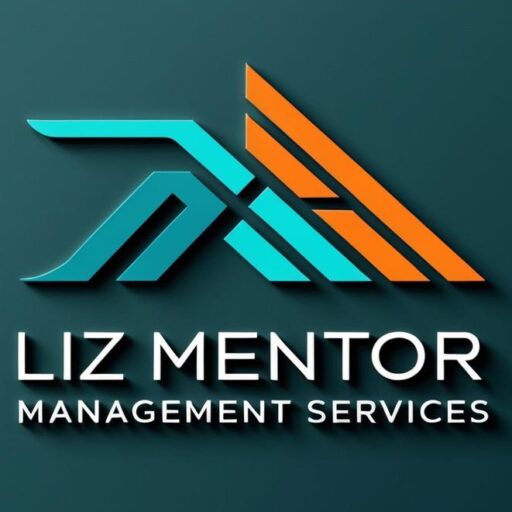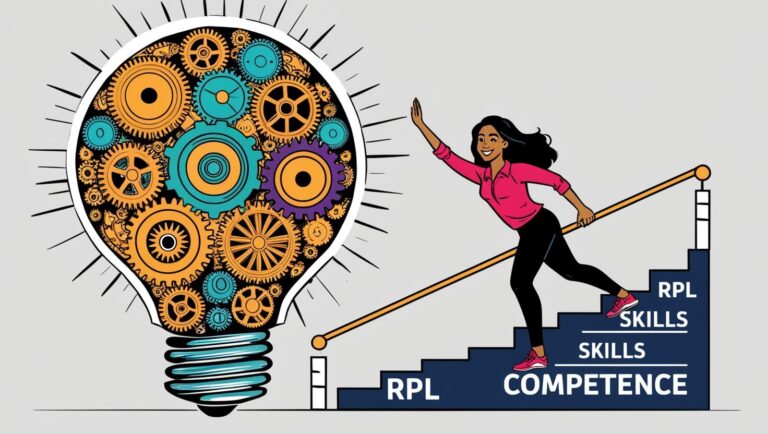Understanding Types of Knowledge: A Guide for Adult Learners in the Workplace
Knowledge is often seen as a singular concept, but in reality, it comes in many forms, each critical for workplace success. Understanding the different types of knowledge helps adult learners, employees, and leaders approach learning strategically, apply skills effectively, and make informed decisions.
In the modern workplace, cognitive skills are just as important as technical skills. Professionals who can differentiate between factual, conceptual, procedural, and metacognitive knowledge are better equipped to solve problems, innovate, and lead effectively.
In this article, we’ll explore the four key types of knowledge, why they matter, and how adult learners can leverage them for personal and organizational growth.
The Importance of Understanding Knowledge Types
Adult learning is most effective when it recognizes that not all knowledge is equal. Each type serves a unique purpose and applies differently in the workplace:
Factual Knowledge provides the foundation.
Conceptual Knowledge allows understanding of relationships and systems.
Procedural Knowledge guides actions and processes.
Metacognitive Knowledge enables self-awareness and strategic learning.
By distinguishing these types, learners can focus on how to acquire, retain, and apply knowledge in real-world situations. For organizations, this understanding improves training effectiveness, decision-making, and innovation.
Factual Knowledge: The Building Blocks
Factual knowledge consists of discrete pieces of information: facts, terms, and basic concepts. In the workplace, this could include:
Company policies and procedures
Product specifications
Industry terminology
Compliance regulations
Factual knowledge is essential because it forms the foundation for more complex thinking. For example, an employee in finance must know accounting terms and reporting standards before analyzing financial statements or developing budget strategies.
Applying Factual Knowledge
Employees apply factual knowledge daily. A customer service agent referencing product details to answer a client question, or a HR professional recalling employment legislation for compliance purposes, demonstrates factual knowledge in action. While seemingly basic, mastery of these facts is critical for accuracy and credibility.
Conceptual Knowledge: Understanding the Big Picture
Conceptual knowledge goes beyond facts—it’s about understanding relationships, systems, and frameworks. It allows learners to grasp how different elements interact and why processes exist.
In the workplace, conceptual knowledge enables:
Understanding how company departments interact
Recognizing cause-and-effect relationships in projects
Interpreting market trends and their business implications
For example, a marketing manager uses conceptual knowledge to understand how social media strategy influences brand awareness, customer engagement, and sales outcomes.
Applying Conceptual Knowledge
Conceptual knowledge helps employees make informed decisions. By seeing patterns and connections, learners can anticipate challenges, optimize workflows, and create strategies that align with organizational goals. It’s the bridge between knowing “what” and understanding “why.”
Procedural Knowledge: Knowing How
Procedural knowledge is knowledge of processes, methods, and techniques. It tells employees not just what to do, but how to do it.
Examples include:
Using software systems or tools efficiently
Following safety protocols in a laboratory
Conducting employee performance evaluations
Leading team meetings effectively
Procedural knowledge is critical because it translates understanding into actionable skills. An employee may know all the facts and concepts but cannot contribute effectively without procedural expertise.
Applying Procedural Knowledge
Procedural knowledge shines when employees are performing tasks or managing workflows. A project manager scheduling tasks, a chef following a recipe with precision, or a software engineer coding an application are all demonstrating procedural knowledge. By mastering procedures, employees increase efficiency, reduce errors, and build confidence.
Metacognitive Knowledge: Thinking About Thinking
Metacognitive knowledge is the ability to reflect on one’s own thinking processes, monitor understanding, and adapt learning strategies. It’s about self-awareness in learning and decision-making.
In the workplace, metacognitive skills help employees:
Evaluate their understanding of tasks
Identify strengths and weaknesses
Adjust strategies for problem-solving
Plan and monitor their learning progress
For example, a sales professional reviewing their pitch, reflecting on client responses, and adjusting tactics demonstrates metacognitive knowledge. This skill enhances adaptability, learning efficiency, and long-term performance.
Integrating Knowledge Types in Adult Learning
For adult learners, understanding these four knowledge types allows for more strategic learning:
Start with Factual Knowledge: Build a strong foundation.
Develop Conceptual Knowledge: Understand connections and relationships.
Practice Procedural Knowledge: Apply skills in real-world tasks.
Enhance Metacognitive Knowledge: Reflect, monitor, and adapt learning strategies.
By integrating these types, learners can move from basic understanding to mastery, improving both cognitive skills and workplace performance.
Practical Illustration: Knowledge Types in Action
Consider a healthcare professional implementing a new patient care system:
Factual Knowledge: Learn system terminology and regulatory requirements.
Conceptual Knowledge: Understand how patient data flows through departments and affects outcomes.
Procedural Knowledge: Use the system to input records, schedule appointments, and generate reports.
Metacognitive Knowledge: Reflect on efficiency, identify errors, and adapt workflows for better performance.
This approach ensures that knowledge acquisition translates into effective action, critical thinking, and continuous improvement.
Overcoming Challenges in Applying Knowledge Types
Employees may struggle to integrate different types of knowledge due to:
Information Overload: Too much data can be overwhelming. Break learning into manageable segments.
Misalignment of Knowledge and Tasks: Ensure training is directly relevant to workplace responsibilities.
Lack of Reflection: Encourage metacognitive practices to reinforce understanding.
Resistance to Change: Support learners in applying new knowledge through mentorship and guidance.
Organizations can overcome these challenges by structuring training programs around knowledge types, providing practice opportunities, and fostering a reflective learning culture.
Linking Knowledge Types to Workplace Performance
Mastering the different types of knowledge has a direct impact on professional effectiveness:
Increased Competence: Employees handle tasks with confidence and accuracy.
Improved Decision-Making: Conceptual and metacognitive knowledge enhances strategic thinking.
Higher Efficiency: Procedural expertise streamlines workflows and reduces errors.
Adaptability: Understanding various knowledge types equips employees to tackle new challenges.
Enhanced Learning Culture: Employees who understand how they learn become self-directed and continuously improving.
By leveraging knowledge types, organizations ensure that training produces measurable results and sustainable growth.
Tips for Adult Learners
Identify Knowledge Gaps: Determine which type of knowledge you need to develop.
Apply Learning to Real Tasks: Practice skills in workplace contexts.
Reflect on Performance: Use metacognition to refine strategies and approaches.
Seek Feedback: Constructive feedback strengthens all knowledge types.
Integrate Knowledge: Combine factual, conceptual, procedural, and metacognitive knowledge for maximum impact.
These tips help learners maximize the value of their learning and translate it into workplace success.
Final Thoughts
Understanding and applying different types of knowledge is fundamental to adult learning and workplace excellence. By distinguishing between factual, conceptual, procedural, and metacognitive knowledge, employees can learn smarter, work more effectively, and make strategic decisions.
Organizations that structure training around these knowledge types cultivate employees who are competent, confident, and capable of driving innovation. Adult learners gain self-awareness, develop critical thinking, and apply knowledge in ways that deliver real results.
In today’s dynamic workplace, mastering these knowledge types is not just a learning strategy—it’s a professional necessity. Those who understand and integrate them into daily practice are better positioned for long-term success, growth, and career advancement.



